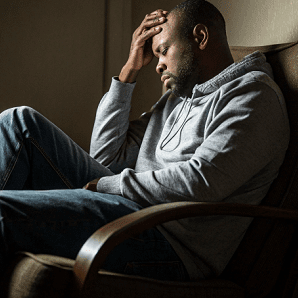Despite long-standing assumptions that suicide and opioid use disorder (OUD) primarily affect White Americans, new research reveals a more complex and troubling reality for Black communities. A study published in Social Science & Medicine found that while White participants with OUD reported higher average depression and anxiety scores, Black participants with moderate to severe symptoms were more likely to report suicidal behavior.
The study analyzed data from adults in recovery in St. Louis, Missouri, using standard mental health screening tools—the PHQ-9 and GAD-7. Researchers discovered that the optimal cut-off scores for identifying suicide risk differed by race, suggesting that these tools may not be equally effective across racial groups. “Symptom severity an
Historically, suicide and opioid misuse have been framed as issues affecting older White men. This narrative has contributed to the underestimation of suicide risk in Black Americans, who face barriers such as stigma, discrimination, and limited access to care. Between 2007 and 2019, opioid-related deaths among Black Americans surged by 575%, compared to 184% among Whites. Suicide rates have also risen, particularly among young Black males.
The findings underscore a critical health equity issue: Black Americans with OUD may be underdiagnosed and underserved by current mental health systems. The authors call for more inclusive research and better screening practices to prevent suicide in this high-risk population.
“Mental health behaviors and suicide risk among White and Black adults with Opioid Use Disorder” (June 2, 2025)



